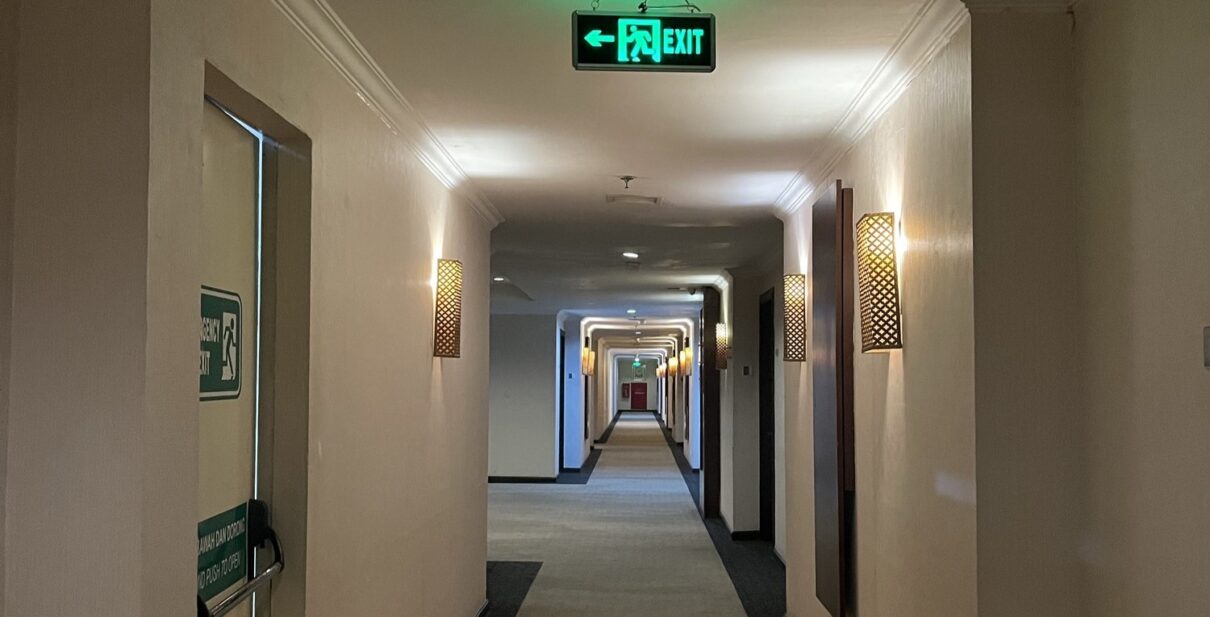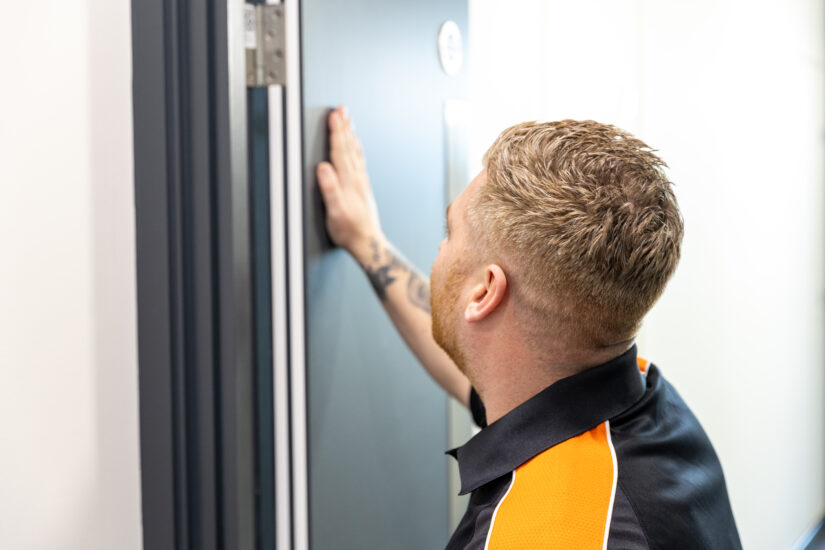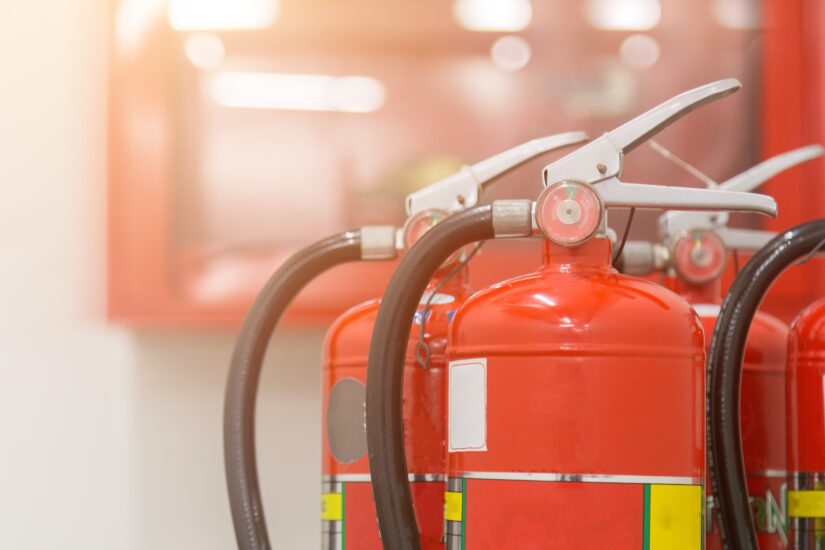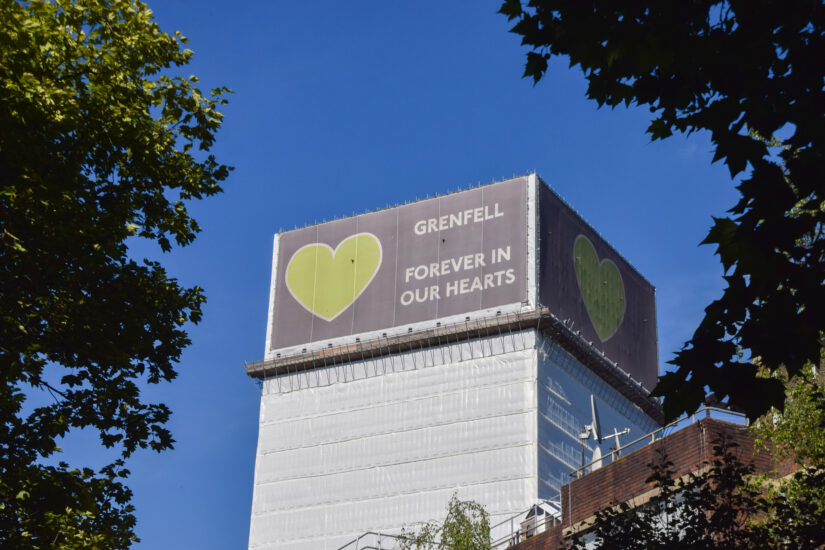Fire protection is a critical aspect of facilities management, especially in environments like student accommodations, where safety and compliance are paramount. At Global Facilities, we take fire safety seriously, offering a range of solutions, including fire door surveys and facilities management services, to ensure that buildings are both safe and compliant.
Fire protection strategies can be broadly categorised into two main types: passive and active fire protection. Both are crucial, and understanding the difference is essential for any facility or building manager aiming to implement a robust fire safety plan.
What is Passive Fire Protection?
Passive Fire Protection (PFP) focuses on containing fires or slowing their spread through the use of fire-resistant construction materials and building design features. These systems are generally built into the structure of a building, meaning they don’t require human intervention or the triggering of a system to function in the event of a fire.
Some key elements of passive fire protection include:
- Fire Doors: Designed to prevent the spread of flames and smoke, fire doors are critical in controlling fire within a building and ensuring safe evacuation routes. Regular fire door surveys are essential to ensure compliance and effectiveness.
- Fire-resistant walls, floors, and ceilings: These are designed to compartmentalise a building into smaller sections, preventing a fire from spreading quickly throughout the facility.
- Fireproof coatings and treatments: Structural elements like steel beams can be treated with fireproofing materials that protect them from extreme heat.
- Smoke seals: Installed around doors and other entry points, these seals prevent smoke from spreading to other areas, allowing more time for evacuation.
In essence, passive fire protection provides time—time for people to evacuate safely and time for firefighters to arrive before the fire spreads uncontrollably.
You should ensure you have these in place, that they’re well maintained and working efficiently:
- Alarms – there should be working alarm systems on every floor of your premises, and in every room of your hotel.
- Emergency Lighting – In the event of a fire, if systems go off, it is vital that there is some sort of lighting for people to navigate their way out of the building.
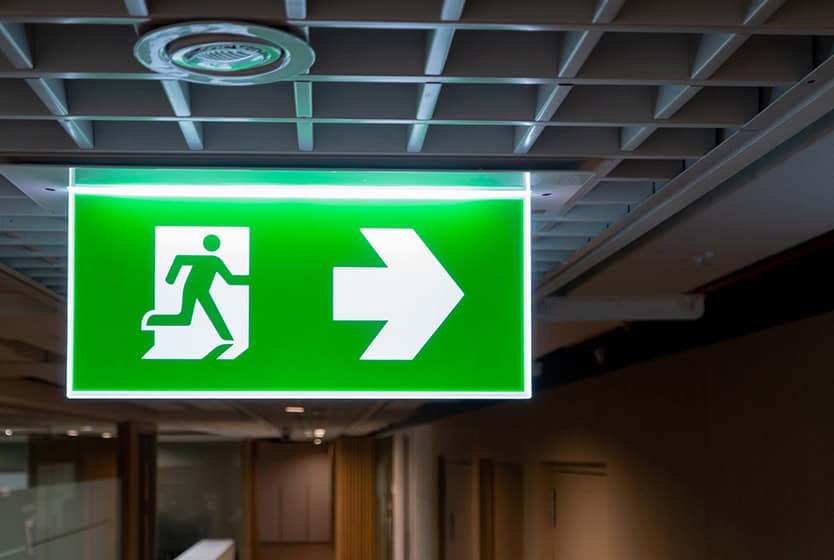
- Fire Doors – In hotels, all bedrooms should be equipped with self-closing fire doors to help prevent the spread of fire. While fire doors are recommended for B&Bs, guesthouses, and self-catering accommodations, they are not mandatory. These doors should have all passed inspections by a competent inspector. Read more about Fire Door Assessments here.
- Fire Exits – Fire exits should be easily accessible at convenient locations throughout the hotel.
- Fire Extinguishers – There are different extinguishers for different types of fires. Make sure you have the right ones spread out in the appropriate places to maximise protection. If you’re unsure of which extinguishers are appropriate, read this guide.
Service and Maintenance
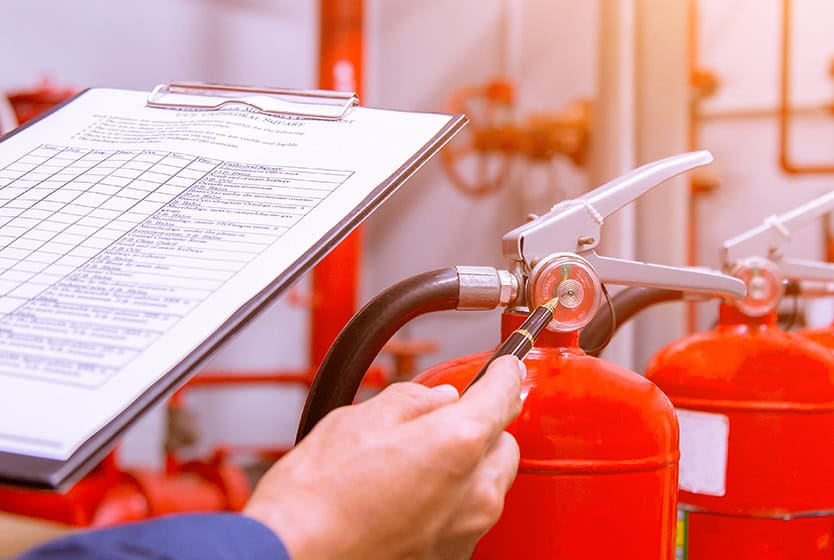
All equipment must be kept in working order and checked at regular intervals by a competent and certified person. One way of achieving this is by using a third-party accredited company, like Global Facilities.
The UK Government have guidelines for Fire Safety in Sleeping Accommodations, which gives advice for staff, common areas for residents and sleeping, dining and other accommodation for guests and residents. You can read the official Fire Safety guidance here.
Training
Fire safety training is a legal obligation for all UK businesses – every member of staff on-site needs to be aware of the hazards and what to do in the event of a fire.
Evacuation Process
This is a key component in your fire safety strategy and there needs to be an evacuation route planned from every room, with every guest made aware of this.
What happens if you fail to meet the fire obligations in your hotel?
The fatality risk associated with fire dramatically increases within sleeping accommodation, so it is understandably taken very seriously by the FSA. If a fire occurs and you have not fulfilled your legal obligations to ensure people’s safety, you could face fines and potentially imprisonment.
Where do I start?

There’s a lot to consider if managing fire safety in a hotel. The best place to start is with a Fire Risk Assessment, which will guide you through making your fire safety strategy competent, efficient and compliant. Get in touch with Global Facilities to book in your inspection with our fire safety specialists, and any remedial works needed to get your building safe, secure and protected from the risk of fire.



